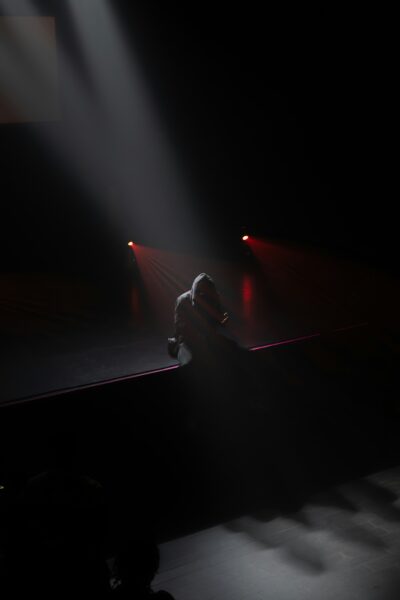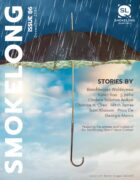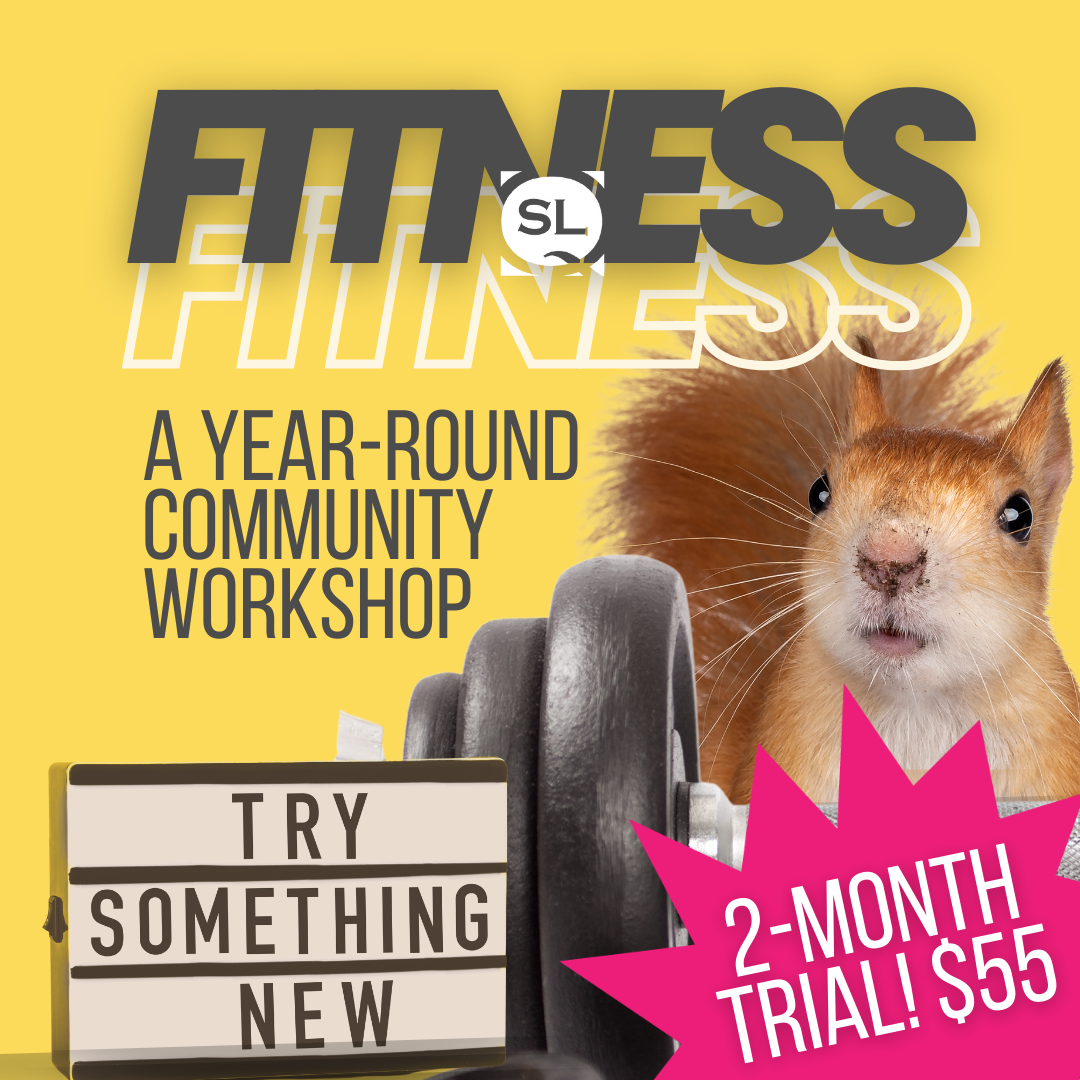CW: molestation
In our second year at the University of Michigan, my friend Nadiya and I decided to run a series of spoken-word poetry workshops together. We hoped it would culminate in a campus-wide People of Color Monologue performed the first week of April. Nadiya squeezed my shoulders, offering thick slices of homemade bean pie that crumbled into buttery nuggets as soon as I put them in my mouth.
Neither of us had made it past the first round of auditions for the Body Monologues our first year. The coordinators said that Nadiya was too quiet and expressionless, and while that could change through practice, they were more concerned about me, which meant there was something irremediable about my performance. Or myself. I knew I was very intense: I used the words “hate” and “vaginas” liberally. I mispronounced words and never corrected them, and when I took off my black sweatshirt and revealed my bare back on which I’d spackled “Bangladeshi Working-Class Muslim Femme Survivor” in red paint during my piece about sexual harassment, Susan, the white-as-a-lily senior coordinator, clenched her jaws and shrieked, “You should’ve said trigger warning!”
Trigger warning for white people be damned, I was ready to perform and dance and scream the truth. I foresaw our workshops being run in the same way, safe spaces where BIPOCs could speak without reservation. Before the first meeting, we put up posters around Angell Hall and the Fishbowl. Nadiya outdid herself: beautiful calligraphy in maize and sapphire blue that surrounded an illustration of a jewel-studded microphone. Two brown and black hands gripping it together.
Ali was the only one who came. He was lean and tall and wore thick glasses. Although he was Arab and Persian, he claimed he didn’t know much poetry. So, we took him to see the Vagina Monologues with us the next weekend. He blushed greatly at first. Nodded appreciatively at the trans-inclusive additions. Then he started following me around everywhere. He listened to my rants, proofread my poems, drove me to my new therapist’s office on Washtenaw Avenue. He brought me crème cappuccino from Sweetwaters, succulent drunken noodles from No Thai!, jalapeño cheese poppers from Fleetwood Diner. People in my dorm raised their eyebrows when they saw us together, said, Areeba, is he your boyfriend? And I laughed so loudly somebody complained to the RA.
We ran a couple more workshops—the three of us sharing cigarettes as we read our poetry drafts aloud—and then Ali stopped showing up. We called him. We emailed. He didn’t reply. It was the last week of March. I found myself wondering for the first time if I had said something to drive him away—a big fat mouth and overly dramatic reactions could be off-putting to people who don’t personally know you, Nadiya told me wisely. I gave her the middle finger. But on my own, I replayed memories: Ali’s crestfallen face when I sneered at his article on the long-term ineffectiveness of landfills in UMURJ; Ali’s blank stare when I forgot his dinner order of a Sassy Roll from Totoro; his wince when I laughed at his poem—the one about unrequited love, gender identity, and kunafeh, our favorite dessert.
Taking our cue from Parsi legend Farrokh Bulsara, Nadiya and I decided that the POC Monologue must go on. We reserved the auditorium at East Quad for a Thursday night. At seven o’clock, we dimmed the lights, stood side by side on the stage. The main door opened, and a few people entered. We didn’t see anyone.
Nadiya performed first. About being a Black Muslim from Detroit. The racism, Islamophobia, classism she’d faced at many corners. How she found peace and community in her poetry, religion, friendships, and baking. How negative experiences made her bean pie richer, warmer, thicker, she ended with a shy smile. Fucking delicious, I shouted as the audience clapped.
Next was me: I’d planned on performing the piece where the White teacher had laid his hand on my crotch. Did things there. When I was 14. How years later I still broke into a sweat in a room alone with a cis White male; how I masturbated with shame, self-hatred. I told everyone I wasn’t going to relive that thing tonight. It’d wrought my life, caused me to be on edge, mock everyone. I was sorry.
I turned on the lights, opening up the floor for others to share if they wished. I counted the heads: three. Then I spotted Ali sitting in the back. My throat felt clogged.
Everyone came up to the stage, formed themselves into a circle. The first to speak was RC drama major and illustrator Arun, a Pakistani-American khawaja sira. They shared their plans to adapt Ismat Chugtai’s short story “Lihaaf” for the stage—the quilt under which Begum Jaan and Rabbu lay together would be embroidered with a map of nations, then torn to shreds to signify the loss of borders. Then Diaz, a disabled Latinx engineer, spoke about how poetry helped turn him away from mining silver in Peru: a colonial bastion that wrecked Indigenous lands. Second-generation Filipinx medical student Lea shared her struggles in being the first in her family to attend college. How Lea Salonga, whom she was named after, and Arnel Pineda helped her through.
Ali shared last. About discovering their queerness. Contextualizing nuggets that had trailed them forever: secretly wearing their sisters’ clothes, crushing on girls, boys. They’d never disclosed it before today—only started considering using they/them pronouns. One person in particular had helped them come out: a beautiful femme of Bangladeshi descent, who could tell it like it is, who always stood tall and incandescent, who they’d fallen in love with.
We all cried. Then we went to Jerusalem Garden where Mustafa, the second-generation Palestinian-American owner, served us the most delicious falafel and lamb shawarmas. Ali and I held each other’s hands under the table, letting them go only when the kunafeh arrived, mellow orange, piping hot, sugary.



 Try SmokeLong Fitness for two months!
Try SmokeLong Fitness for two months!